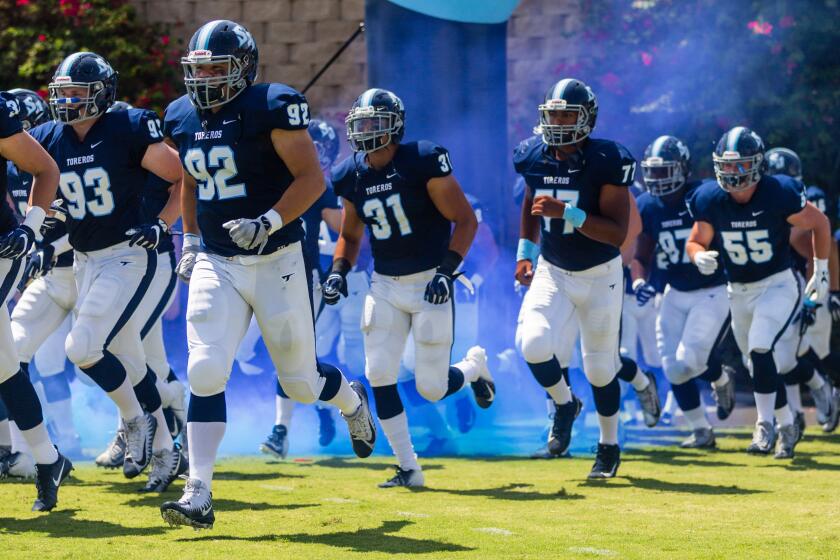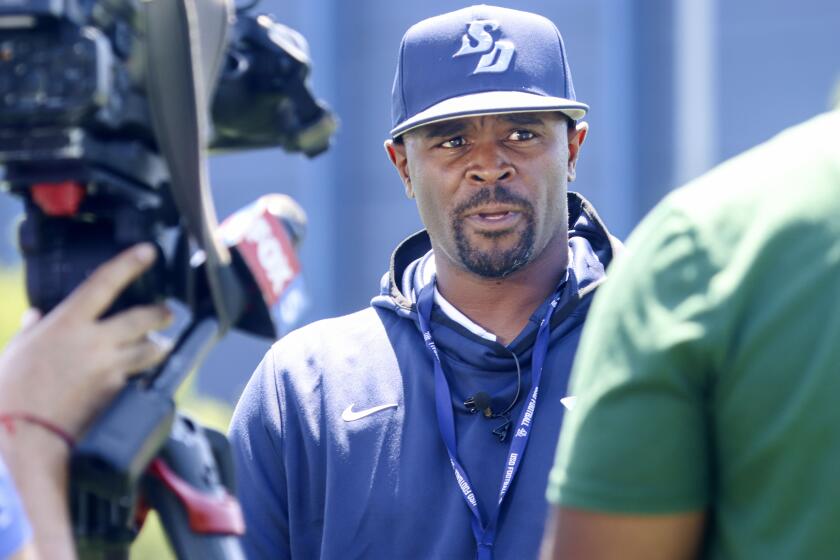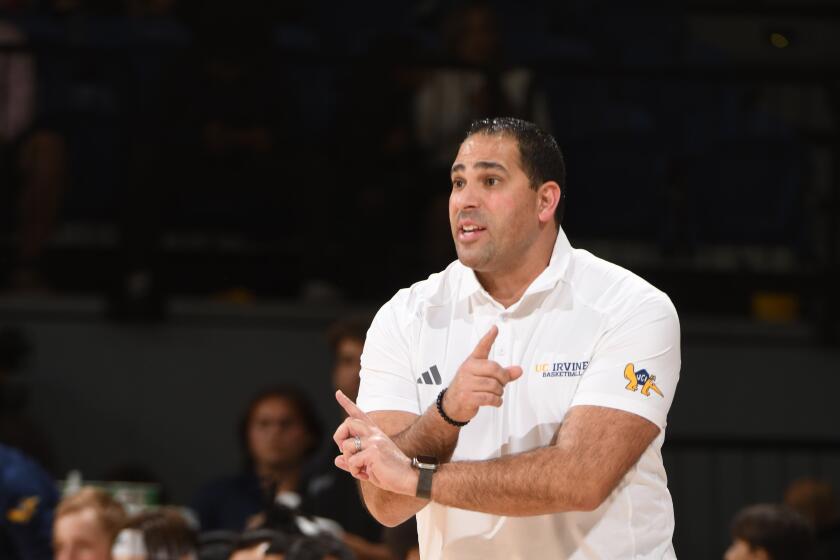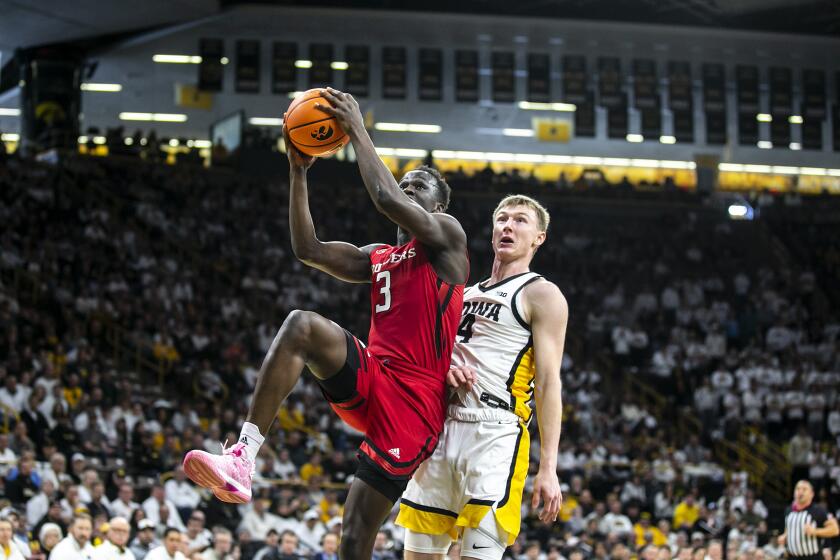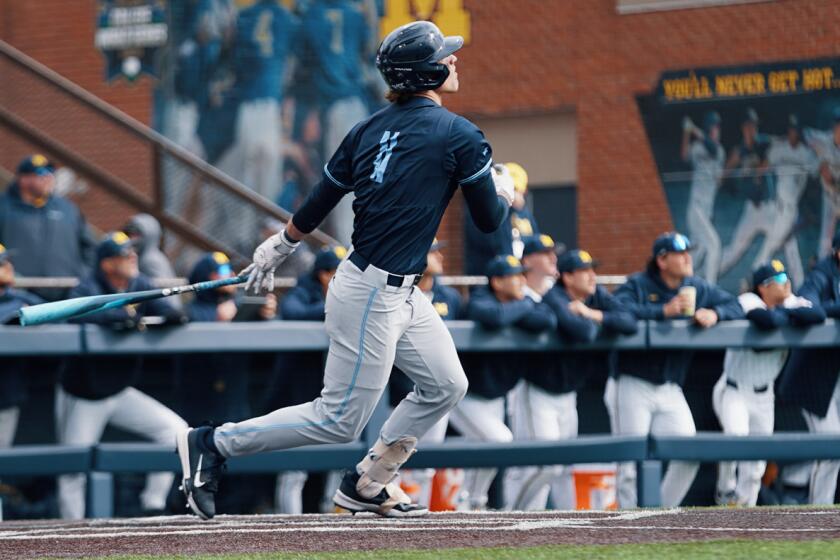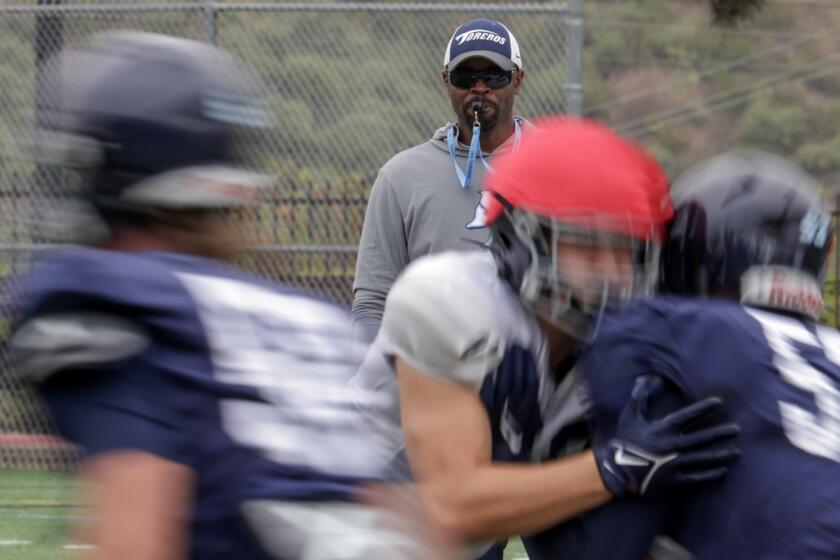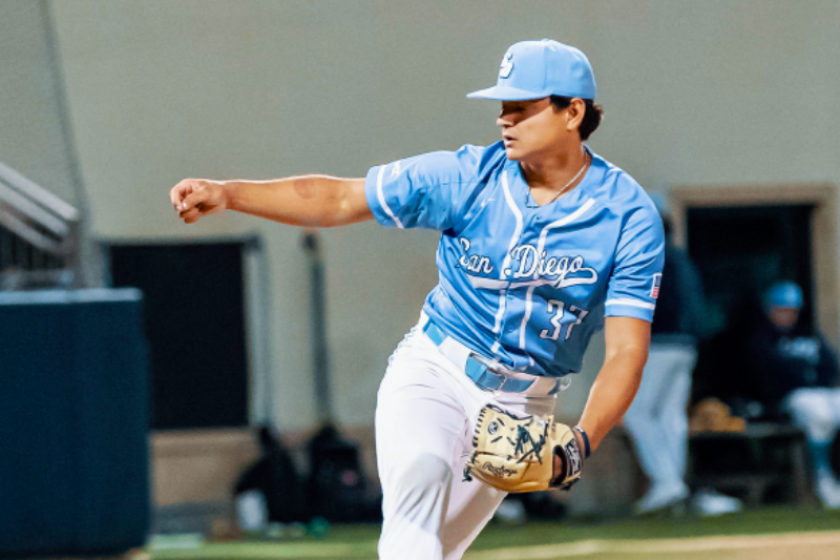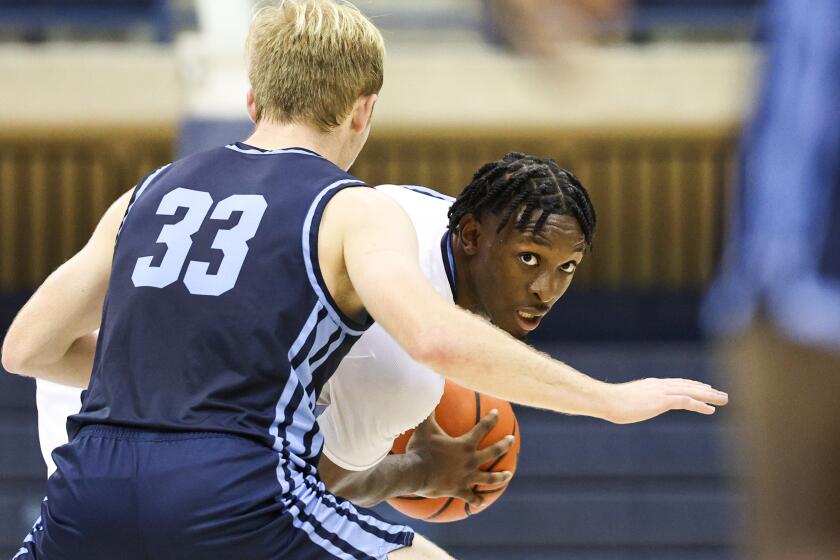Half of USD’s football team disciplined following hazing incident, president says
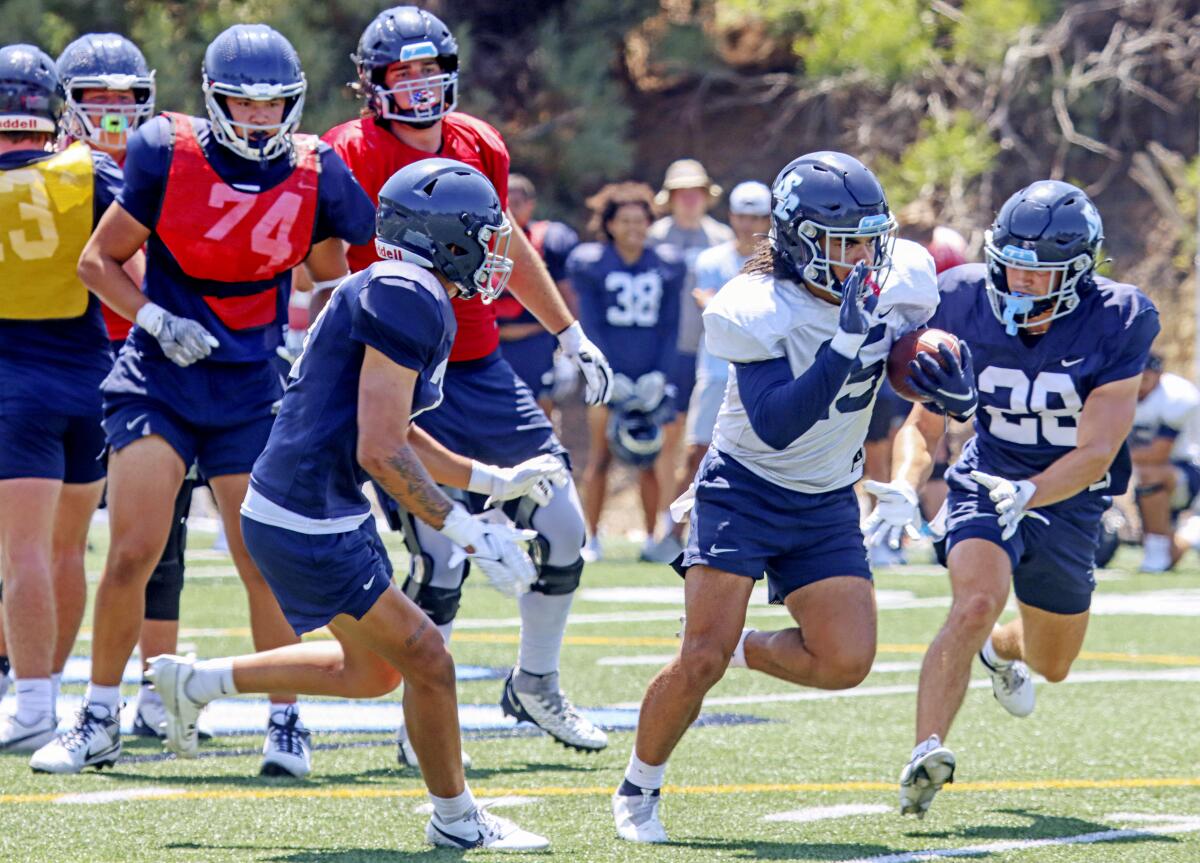
In a letter to staff, James T. Harris III says roughly half the players on the Toreros’ roster ‘were either active or passive participants’ and will face ‘varying degrees of disciplinary action’
Approximately half of the University of San Diego football team will face “varying degrees of disciplinary action” over a preseason hazing incident, according to a letter sent to staff from President James T. Harris III.
Some players have received “indefinite game suspensions,” Harris wrote, but Saturday’s season opener at Cal Poly will proceed as scheduled. It remains unclear how many players — or starters — first-year coach Brandon Moore will have at his disposal.
Major college football programs typically carry about 110 players, with 85 of them on scholarship. USD, a non-scholarship program that plays in the Pioneer League, is a bit smaller. The school listed 89 football players on its athletic department website as of Tuesday.
Harris wrote that the university has forwarded results of a preliminary investigation to San Diego police and hired an outside firm to “immediately start an independent review.”
“I write to you today to share the deeply disturbing news that members of the USD football program have been accused of violating the university’s no-hazing policy,” Harris wrote. “I wish to commend the courageous young men who truthfully recounted what had transpired. They represent the high character and integrity we hope to see in our students.”

Harris said Moore was informed of hazing allegations on Aug. 18 and “within hours” the university had suspended all football activities. A preliminary investigation was conducted by the athletic department and Office of Public Safety.
“As a result of this investigation,” Harris wrote, “approximately half the football team, who were either active or passive participants, will face varying degrees of disciplinary action. … These initial disciplinary actions relate only to athletics participation. Since all USD students are held accountable to the USD Student Code of Conduct, further disciplinary action could ensue.”
In statement to the Union-Tribune, USD says coaching staff learned of situation involving unknown number of players on Friday, then suspended football activities; opener remains on
Harris closed the letter by saying: “Hazing or bullying of any sort is a reprehensible act that denies a person the respect and dignity they deserve. As a university, we must continue to strive to make this a community where there is no place for such behavior as we work together to create a more inclusive, sustainable and hopeful world.”
The specific nature of the hazing has not been disclosed. In a statement released to the Union-Tribune last week, USD officials said “the university does not believe anyone was physically harmed.”
The topic became national news in July, when hazing at Northwestern University — the student newspaper reported it involved “coerced sexual acts” along with a “culture enabling racism” — resulted in the firing of longtime head coach Pat Fitzgerald.
Harris’ letter said the university’s zero-tolerance policy for hazing was addressed with team by Moore as well as athletics and Student Affairs administrators “in multiple settings” at the start of preseason camp.
“I was upset, hurt and troubled,” Moore said last week in his only media availability since the university acknowledged the alleged incident.
Moore said the program “had a player go missing (from team activities). We inquired about it. He went home, needed to decompress.”
New Toreros coach Brandon Moore ‘upset, hurt and troubled,’ but short on answers as program digs into investigation
Harris’ letter provides a link to the university’s hazing policy and the California Hazing Law, known as “Matt’s Law” after the death of Matthew Carrington in a hazing incident at a Chico State fraternity in 2005. It carries up to a $5,000 fine and one year in jail for a misdemeanor offense and more severe penalties if it involves bodily injury and rises to a felony.
“The person who was hazed and/or their family can sue individuals and the entire organization for physical and emotional distress,” the university policy says.
Sign up for U-T Sports daily newsletter
The latest Padres, Chargers and Aztecs headlines along with the other top San Diego sports stories every morning.
You may occasionally receive promotional content from the San Diego Union-Tribune.
